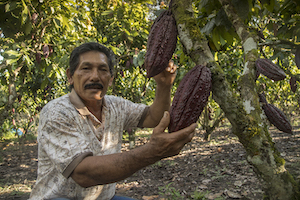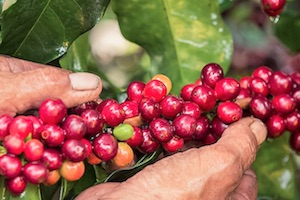Tropical forests are disappearing rapidly as people clear the natural landscape to make room for farms and pastures, harvest wood for construction and fuel, and build roads and urban areas.

Climate change, forest loss, and the global shortage of new arable land are among the most urgent challenges that humanity is facing. The ability of human societies to meet these inter-connected challenges with effective, large-scale solutions over the next 10 to 20 years will influence the levels of human suffering through hunger and malnutrition and the capacity of the Earth to sustain life for centuries to come.
Rising food prices and the scarcity of new farmland in the US and Europe are helping to drive agricultural and livestock expansion into the Tropics. Tropical forests are disappearing rapidly as people clear the natural landscape to make room for farms and pastures, harvest wood for construction and fuel, and build roads and urban areas. These activities, in turn, release CO2 and other greenhouse gasses into the atmosphere that change our climate. Farming, logging, and livestock production emit nearly one third of total global greenhouse gas emissions. These emissions are likely to increase as farmers and livestock producers around the world race to keep up with growth in demand.
A critical challenge over the next decade is to initiate and sustain a worldwide transition of the current prevailing rural development model, to an alternate model where we produce more with less and support emerging economies to move directly into sustainable, low-emission economies. When public policies, technical support to farmers, regional planning, and responsible businesses are in place, the needs of both local populations and global commodity consumers can be met while maintaining the health and long-term productivity of native ecosystems, soils and water supplies.


